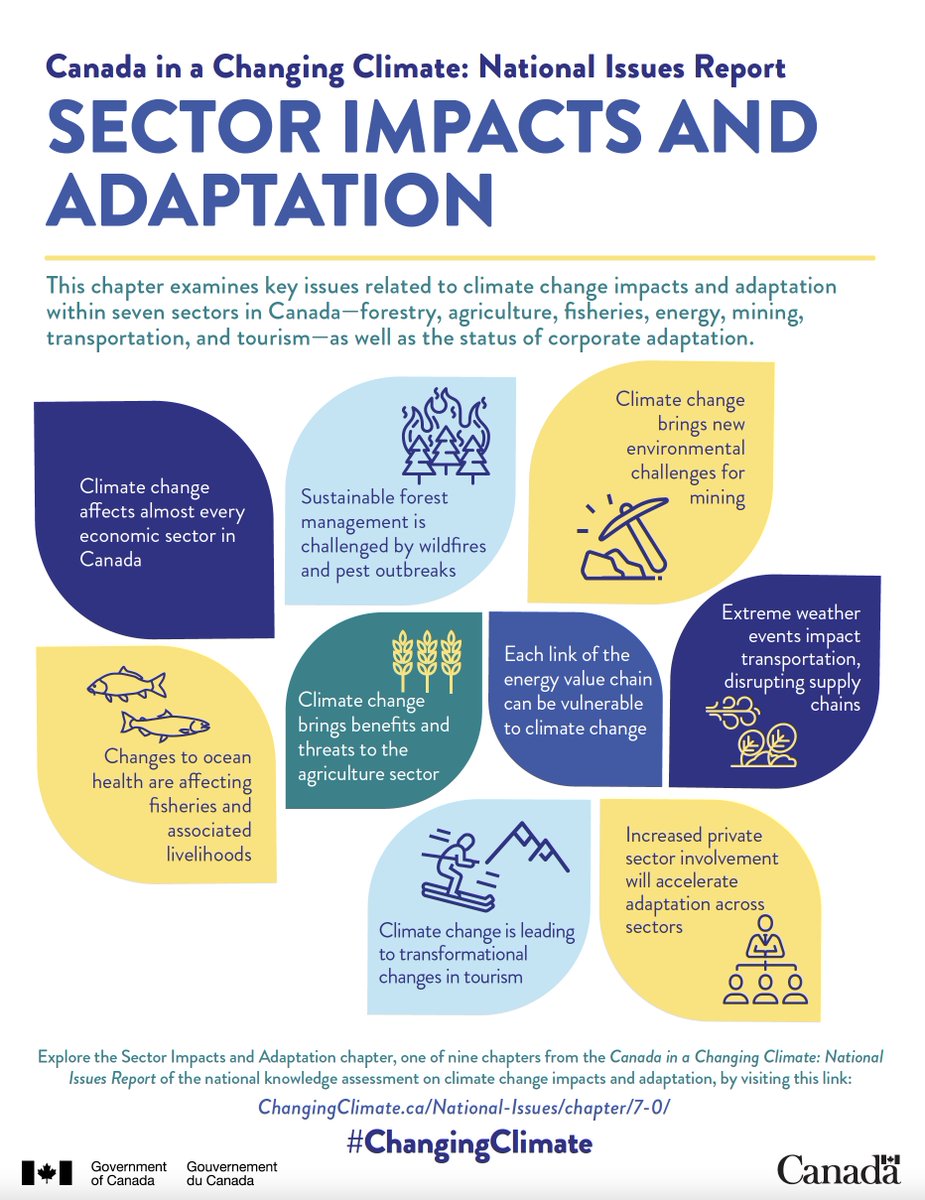
Yesterday broke the all-time 🇨🇦 high. What a timely day for @NRCan to release Canada’s National Issues Report that explains what climate change means to us here in the rapidly-thawing north. A brief thread ... #ChangingClimate @Environmentca @CanadaAdapts changingclimate.ca/national-issues
Background: In 2019, Canada’s Changing Climate (part 1) showed that Canada's warming 2x faster than the rest of the world. Weather extremes are intensifying and coastal flooding is increasing as sea level rises. What's new in part 2? 6 key conclusions:
changingclimate.ca/CCCR2019/
changingclimate.ca/CCCR2019/
1. The infrastructure, health and well-being, cultures and economies of communities of all sizes across the country are already experiencing the impacts of climate change. While local action to reduce climate-related risks is on the rise, many lack the capacity to act. 



2. You might think water & forests are the least of our problems…but no, climate change is affecting them too. The report highlights the importance of nature-based approaches to adaptation that maintain or restore ecosystems, like @natureunited’s amazing Emerald Edge project 



If you'd like to know more about the Emerald Edge project with First Nations in BC, see nature.org/en-us/about-us…
3. We’re a northern country, so we get a few benefits from a warmer world … but these are outweighed by the negatives. Overall, climate change will cost our economy, from disrupting supply chains to putting infrastructure and health at risk. 

4. Climate change doesn’t stop at the border. What other countries are - or aren’t - doing to adapt their food and resource systems will affect us through both trade and immigration. 

5. Many orgs, cities and provinces are already building resilience to climate impacts but large gaps remain. We see this first-hand through the record heat today, as well as recent floods and wildfire. Accelerating progress is vital for Canada’s economic and social well-being. 

6. Lastly, it highlights how much we have to learn from each other on good practices: collaboration, incorporating diverse perspectives, and recognizing how much Indigenous Knowledge Systems have to bring to the table.
The next report will take a closer regional look at the different parts of Canada. However, this already highlights the unique strengths and barriers to action we have, emphasizing the need to act - NOW and TOGETHER.
• • •
Missing some Tweet in this thread? You can try to
force a refresh







